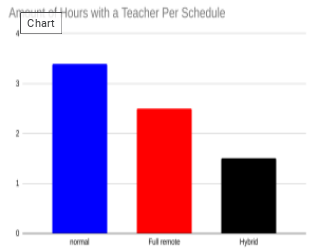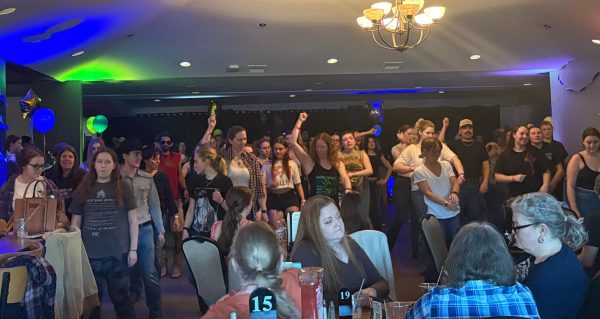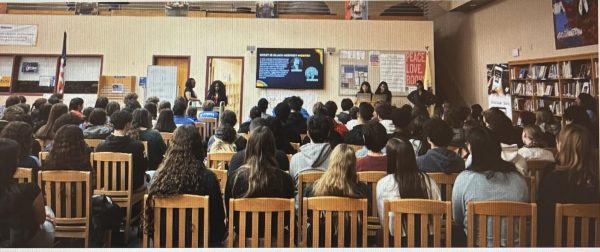COVID-19 Presents AP Quandary

The students and staff of Warren Hills have no doubt been profoundly affected by the COVID-19 pandemic this year, but while all classes have their difficulties, none face more than the Advanced Placement classes.
AP consists of rigorous college-level courses that require full attention so students don’t fall behind and so they properly learn the material in time for their national AP exams, which are scheduled this year for May and June.
Warren Hills AP teachers say that because of the shortened class schedules due to COVID-19 restrictions, they have trouble fitting everything that students need to learn into their curricula. A major fear is that fewer hours of class time given to students in AP classes could produce dire effects on students’ ability to learn and absorb the material properly in the time given.
Warren Hills’ hybrid schedule means a student will attend 1.5 hours of each course with a teacher per week. When the school is shut down and placed on a remote schedule, the amount of weekly time for each course rises to 2.5 hours. Prior to March 2020, when the pandemic forced changes in school schedules statewide, students averaged about 3.4 hours per week for each course at Warren Hills. Thus, the pandemic has cut into teachers’ face-to-face time with their students.
“I believe it is very unfortunate to only have the opportunity to meet with the AP students once a week,” said Social Studies Teacher Laura Slane, who teaches AP Modern World History. “I am attempting to teach 800 years of history of the 195 countries as well as all of the writing skills needed to be AP proficient. This means the students must do more independent work. At times I do feel the student is being cheated and can be better served if we could meet an additional day during the course of the week.”
Both students and teachers in AP classes see difficulties, but it’s not all downsides from the point of view of some students.
“I like how I have some time in between classes to get stuff done,” said Peter Duda, a senior enrolled in the hybrid schedule.
Duda also remarked that even though he has time in between his classes to complete work, his AP teacher does a good job of spreading out the work.
Still, Duda knows how detrimental it might be to his education and to his AP test score to spend fewer class hours in AP Physics I. He said the pandemic means that he will not get the same level of learning and understanding as this class would normally provide.
The difficulties that have been brought by the schedule are not the same for each class, however.
Yuliana Pereginets, a junior following the virtual remote schedule, says her AP Chemistry teacher posts about one to four videos with the weekly lessons.
Pereginets, who is a student in five AP classes, finds this strategy helpful because “being able to replay an entire lesson helps with my attention span and also puts everything into one place.”
She finds it easier than other classes that only post solution videos and teach during class time with no videos. She thinks the way her chemistry teacher posts lessons is very helpful.
The overwhelming consensus among AP students is that the education received this year will fall short of previous years due to fewer hours in the classroom and the lack of a normal school schedule.
On the other hand, a common theme among interviewed students was the helpfulness of the two days of being out of class each week under the hybrid schedule. Students say those two days enable them to complete the increased amount of work received each week.
Another consideration is that AP courses usually attract students who are among the most academically motivated in the school, so the scores on the upcoming exams might end up being nothing to worry about.
“I am very proud of the hard work all of my students have been putting into ensuring their success on exam day,” Slane said.




